Search Results for: mutations
Skip to resultsCan’t find what you’re looking for? Visit our FAQ page.
2,461 results for: mutations
-
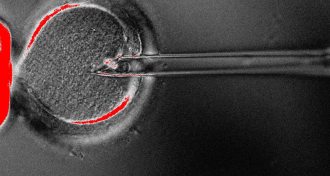 Genetics
GeneticsYear in review: ‘Three-parent baby’ technique raises hope and concern
Safety and ethical concerns surround controversial mitochondrial replacement therapy.
-
 Genetics
GeneticsCancer mutation patterns differ in smokers, nonsmokers
The DNA of smokers shows more damage than the DNA of nonsmokers who have the same kind of cancer.
-
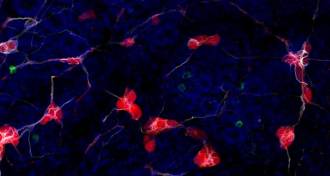 Neuroscience
NeuroscienceProtein linked to Parkinson’s travels from gut to brain
Parkinson’s protein can travel from gut to brain, mouse study suggests.
-
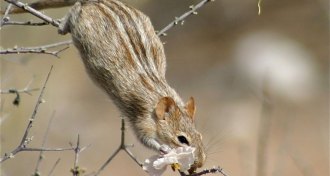 Genetics
GeneticsGene gives mice and chipmunks their pinstripes
A recycled regulator paints on rodents’ light stripes.
-
 Health & Medicine
Health & Medicine‘Three-parent baby’ boy healthy so far
A baby boy born with donor mitochondrial DNA seems to be healthy, researchers report at a meeting.
-
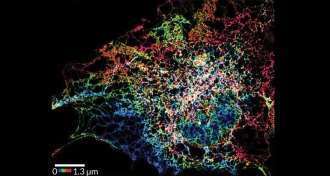 Life
LifeScientists need to redraw picture of cell’s biggest organelle
A close-up view of the cell’s endoplasmic reticulum reveals a different structure.
-
 Genetics
Genetics‘Three-parent babies’ explained
Several in vitro techniques can produce babies with three biological parents.
-
 Genetics
GeneticsBig biological datasets map life’s networks
Expanding from genomics to multi-omics means stretching data capacity, but it may lead to a future of early diagnosis, personalized medicine and hardy crops.
-
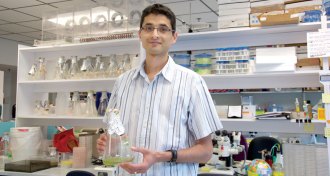 Life
LifeAneil Agrawal unites math and mess
Evolutionary geneticist Aneil Agrawal is equally at home with real and hypothetical fruit flies.
By Susan Milius -
 Genetics
GeneticsFirst ‘three-parent baby’ born from nuclear transfer
The first human baby produced through spindle nuclear transfer was born in April, New Scientist reports.
-
 Genetics
GeneticsTo study Galápagos cormorants, a geneticist gets creative
To collect DNA from four cormorant species, this scientist called in bird scientists far and wide.
-
 Life
LifeScientists watch as bacteria evolve antibiotic resistance
A giant petri dish exposes the evolutionary dynamics behind antibiotic resistance.